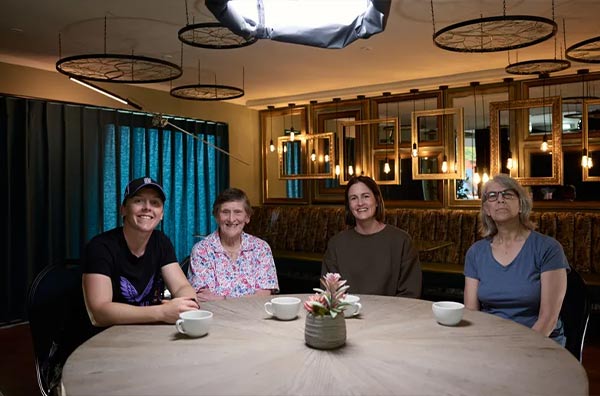With women’s cricket moving into a revolution with the introduction of a professional county system in England and the ICC Women’s T20 World Cup looming large in 2026, four generations of English cricketers came together to discuss the growth of the game.
Lydia Greenway, Lynne Thomas, Carole Cornthwaite (née Hodges), and Heather Knight—together hold 599 England caps over nearly six decades of playing the game—spoke about their own paths in the sport.

Among them, five World Cups were won, opening the way for generations of budding cricketers. Though they differ in different shades of their professional experiences, they resemble alike with similar challenges, achievements, and the abiding love of the sport.
In a fruitful discussion, the veteran and the current stars rewinded the clock at the time when they were introduced to cricket. From playing for England on the international stage to the harsh realities of pay, facilities, and equipment, they discussed the development of the game and the legacy left by trailblazers such as the greatest Rachael Heyhoe Flint.
Looking back on World Cup victories, the effect their success has had, and even discussing the minutes of technique—like the reverse-sweep—their conversation served as a platform to remind us how far women’s cricket has come and what lies ahead.
England’s skipper Heather Knight recognized the revolution in women’s cricket, highlighting how much the sport has evolved. She praised the role of earlier players in paving the way for the professional league by braving the systemic problems to provide more opportunities to the next level.
As quoted by Knight, the game is nowadays much more accessible to young girls, owing to those who broke the mold and provided a career in cricket as a more viable option. “We have something in common, having all represented our country, and it was really heart-warming to find out the experiences we shared as well as what separated us,” she further added.
Lynne Thomas, one of the veteran cricketers and the very first centurion in the history of Women’s World Cup in 1973, discussed how much the game has changed since she was handed over her international cap in 1966. She spoke at length about how much she enjoys watching captain Heather Knight and the modern-day English side play, relishing the time where she is able to bond with them, as well as Lydia Greenway and Carole Cornthwaite.
Reflecting on the paradigm shift from the time that belonged to their era, she said, “I just love seeing women’s cricket grow and more women and girls given the chance to get involved. It’s a fantastic sport to play and I hope it continues to get bigger.”
Carole Cornthwaite (née Hodges), a 1993 World Cup champion, reminisced about her nostalgic days of cricket, citing that she was lucky to have someone who took her to a local club. She pondered how this was a shared experience for many of her generation of women and even those that preceded her.
Nevertheless, she made it clear that the sport has changed much in terms of how accessible it is today. “My experiences as an England player were not entirely dissimilar to Heather and to Lydia. It was really nice to chat as equals on that topic, and I appreciated the chance to bring together different eras of the England team.”
Double World Cup winner in 2009 Lydia Greenway OBE stressed the need to acknowledge and honor the achievements of players from prior to the professional era. She was interested to learn about the lives of Lynne Thomas and Carole Cornthwaite, observing that the access to cricket they enjoyed as little girls was quite different from their own times.
Even with the problems they encountered, they became the pinnacle of the sport and were instrumental in building the game to what it has been in 2025. “Across all women’s sport it’s really important to remember those women who were there at the beginning, we owe them so much.”
(Quotes sourced from England and Wales Cricket Board)

Loves all things female cricket